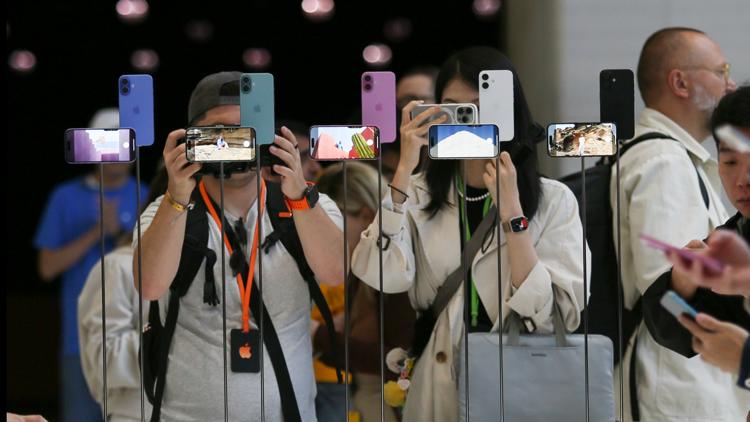WASHINGTON — Apple is accelerating the rollout of a software update that will implant artificial intelligence into its virtual assistant Siri and automate a variety of tedious tasks to coincide with the release of its latest iPhone.
The free update enabling the first set of features in Apple's suite of artificial intelligence became available Thursday — about two weeks ahead of the October release that Apple projected earlier this month when it unveiled the iPhone 16.
Apple didn’t say why its artificial intelligence software is coming out ahead of its original schedule, but the technology is a marquee attraction in the four iPhone 16 models arriving in stores Friday.
All iPhone 16 models, with starting prices ranging from $800 to $1,200, are equipped with a special processor required for the new technology, which the company is marketing as “Apple Intelligence.” That branding is part of an effort to distinguish the iPhone’s AI from similar technology already available in smartphones released earlier this year by Samsung and Google.
The AI technology is coming out in U.S. English only for now, but will expand into localized English in Australia, Canada, New Zealand, South Africa, and the U.K. in December. Apple plans to expand into other languages and countries next year.
Once the iOS 18.1 upgrade is installed, the often bumbling Siri is supposed to become more conversational, versatile and colorful, with a glowing light that will rotate around the iPhone's screen as it responds to requests. While Apple is promising Siri will be able to perform more tasks and be less prone to becoming confused, it won't be able to interact with other apps installed on the iPhone until another software update comes out at a still-unspecified date.
Other AI features in the software update will handle a variety of writing and proofreading tasks, summarize the content of emails and other documents. The AI also will provide a variety of editing tools to alter the appearance of photos and make it easier to find old pictures.
But the update doesn't include other AI tricks still to come, such as the ability to create customized emojis on the fly or conjure other fanciful imagery upon request. Apple also plans to eventually enable its AI suite to get a helping hand from OpenAI's ChatGPT when users want it.
Besides the new iPhone model, Apple's AI features also will work in two premium versions of the iPhone 15 after the software update to the recently released iOS 18 is installed. That's because both the iPhone 15 Pro and iPhone 15 Pro Max also came with the computer chip needed to power the new AI. The update will also bring the ability to record spatial video on those two iPhone 15 models that can be watched on Apple's $3,500 Vision Pro headset.
But the AI won't work on hundreds of millions of other iPhones, a drawback that investors are betting will juice Apple's recently slumping sales of the ubiquitous device.
That expectation is the main reason that Apple's stock price has climbed by more than 15% since the company previewed its AI strategy in June, creating $500 billion in shareholder wealth. Some analysts believe the demand for new iPhones could propel Apple's market value above $4 trillion for the first time within the next year.



